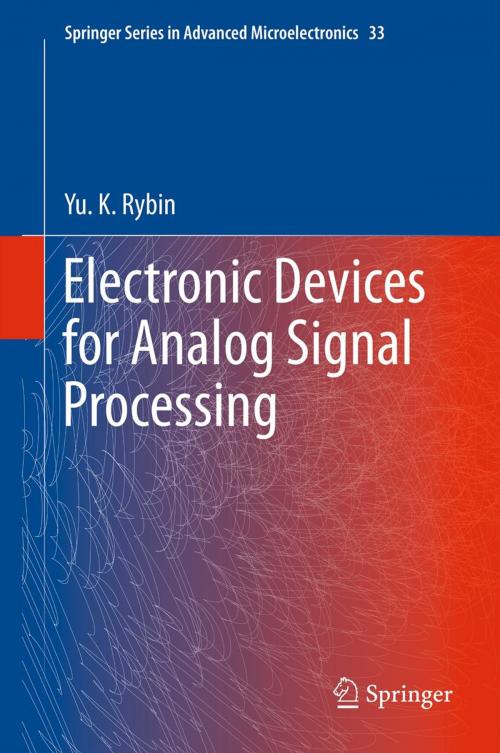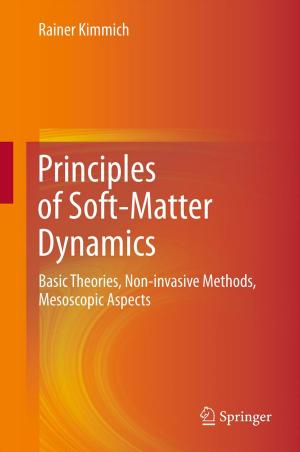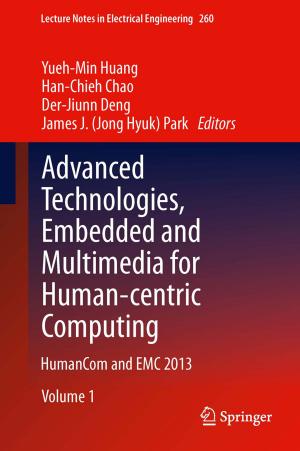Electronic Devices for Analog Signal Processing
Nonfiction, Science & Nature, Science, Physics, Solid State Physics, Technology, Electronics, Circuits| Author: | Yu. K. Rybin | ISBN: | 9789400722057 |
| Publisher: | Springer Netherlands | Publication: | October 13, 2011 |
| Imprint: | Springer | Language: | English |
| Author: | Yu. K. Rybin |
| ISBN: | 9789400722057 |
| Publisher: | Springer Netherlands |
| Publication: | October 13, 2011 |
| Imprint: | Springer |
| Language: | English |
Electronic Devices for Analog Signal Processing is intended for engineers and post graduates and considers electronic devices applied to process analog signals in instrument making, automation, measurements, and other branches of technology. They perform various transformations of electrical signals: scaling, integration, logarithming, etc. The need in their deeper study is caused, on the one hand, by the extension of the forms of the input signal and increasing accuracy and performance of such devices, and on the other hand, new devices constantly emerge and are already widely used in practice, but no information about them are written in books on electronics.
The basic approach of presenting the material in Electronic Devices for Analog Signal Processing can be formulated as follows: the study with help from self-education. While divided into seven chapters, each chapter contains theoretical material, examples of practical problems, questions and tests. The most difficult questions are marked by a diamond and can be given to advanced readers. Paragraphs marked by /// are very important for the understanding of the studied material and together they can serve a brief summary of a section. The text marked by italic indicates new or non-traditional concepts. Calculated examples are indicated by >.
The main goal of Electronic Devices for Analog Signal Processing is not only to give some knowledge on modern electronic devices, but also to inspire readers on the more detailed study of these devices, understanding of their operation, ability to analyze circuits, synthesize new devices, and assess the possibilities of their application for solution of particular practical problems.
Electronic Devices for Analog Signal Processing is intended for engineers and post graduates and considers electronic devices applied to process analog signals in instrument making, automation, measurements, and other branches of technology. They perform various transformations of electrical signals: scaling, integration, logarithming, etc. The need in their deeper study is caused, on the one hand, by the extension of the forms of the input signal and increasing accuracy and performance of such devices, and on the other hand, new devices constantly emerge and are already widely used in practice, but no information about them are written in books on electronics.
The basic approach of presenting the material in Electronic Devices for Analog Signal Processing can be formulated as follows: the study with help from self-education. While divided into seven chapters, each chapter contains theoretical material, examples of practical problems, questions and tests. The most difficult questions are marked by a diamond and can be given to advanced readers. Paragraphs marked by /// are very important for the understanding of the studied material and together they can serve a brief summary of a section. The text marked by italic indicates new or non-traditional concepts. Calculated examples are indicated by >.
The main goal of Electronic Devices for Analog Signal Processing is not only to give some knowledge on modern electronic devices, but also to inspire readers on the more detailed study of these devices, understanding of their operation, ability to analyze circuits, synthesize new devices, and assess the possibilities of their application for solution of particular practical problems.















